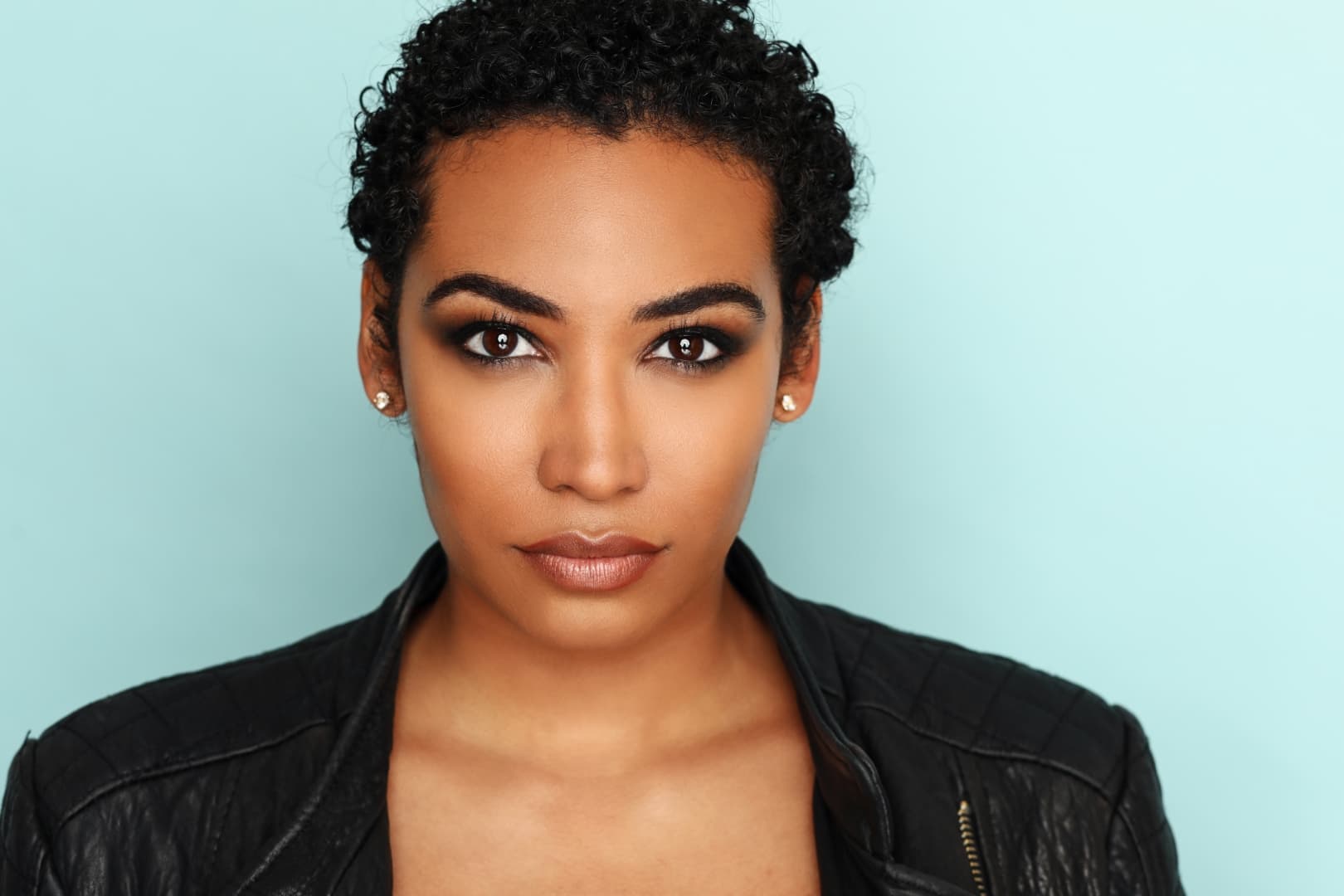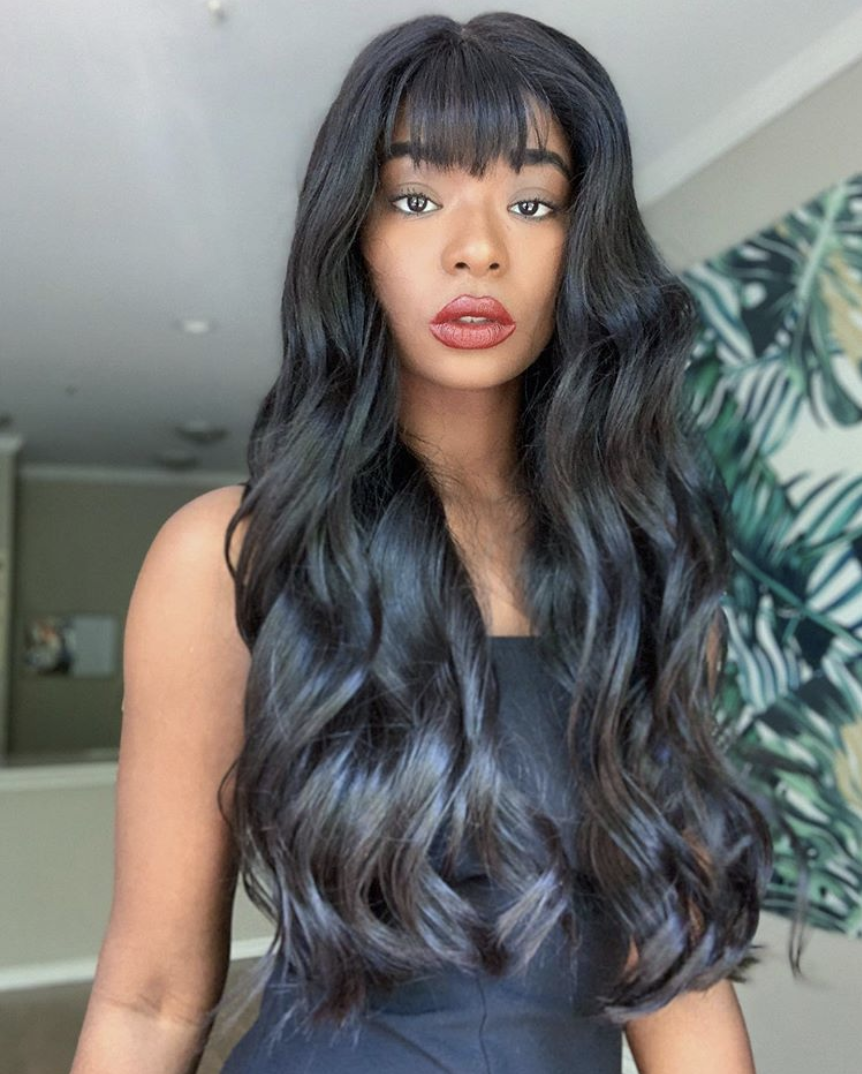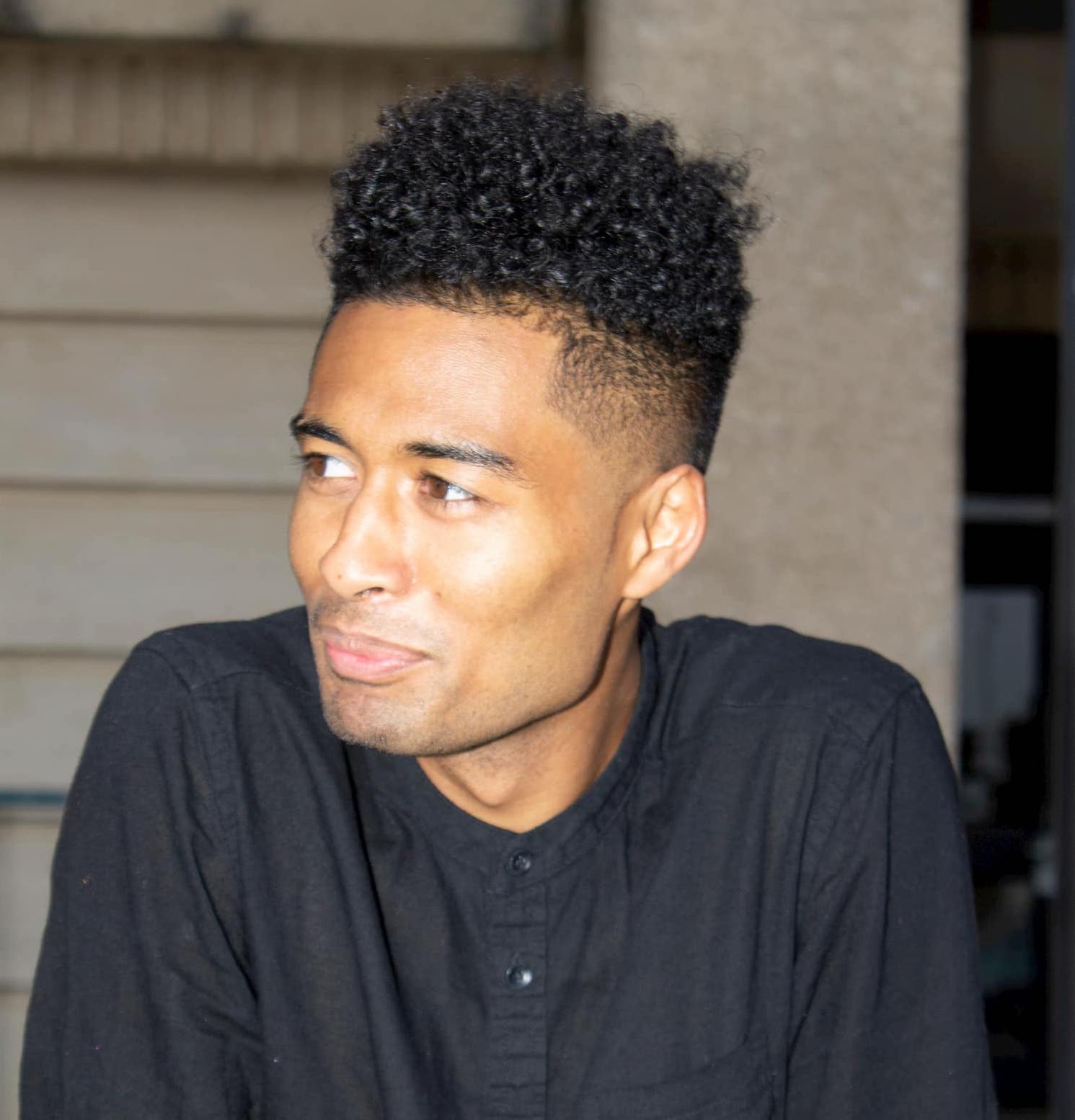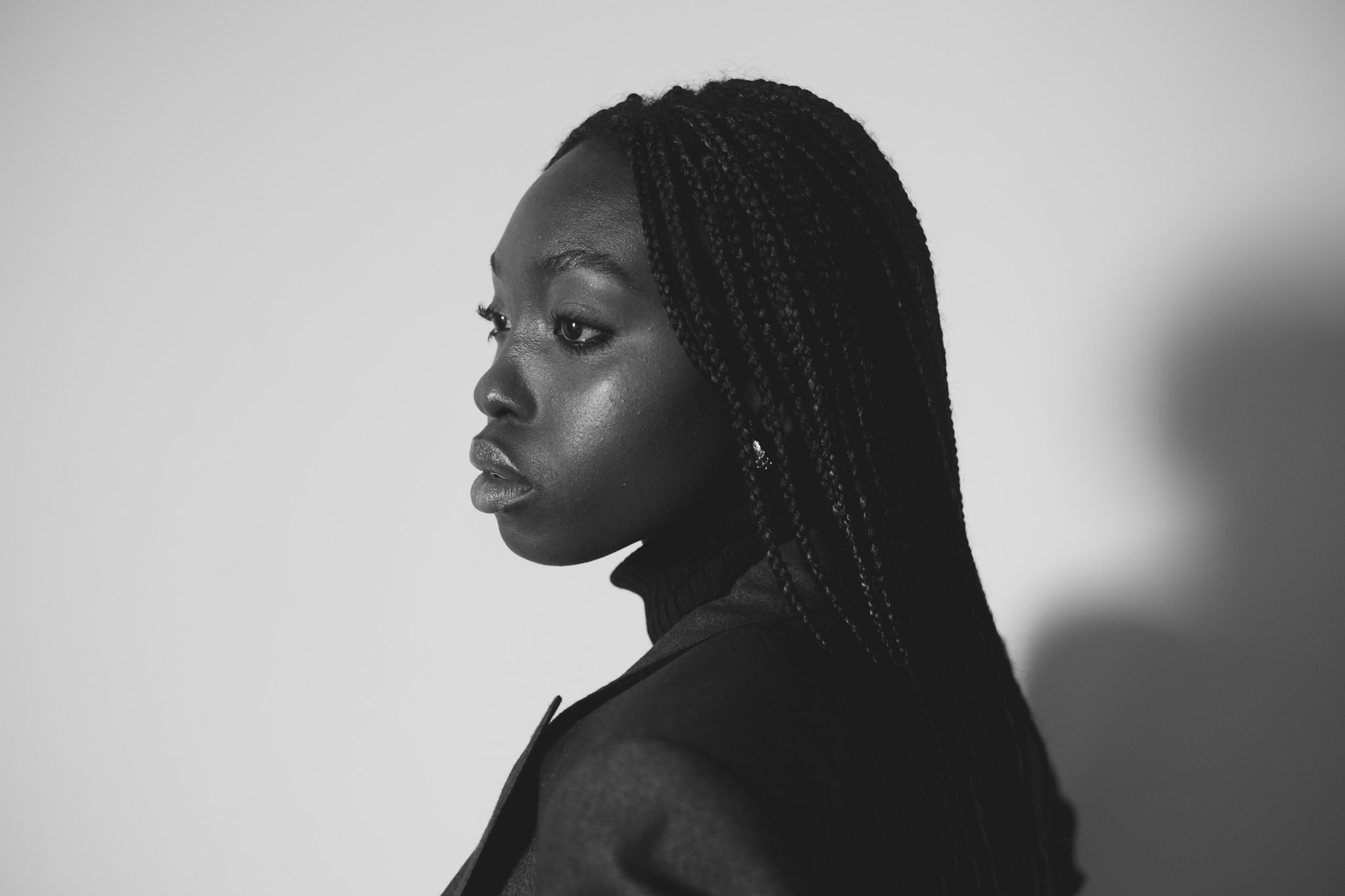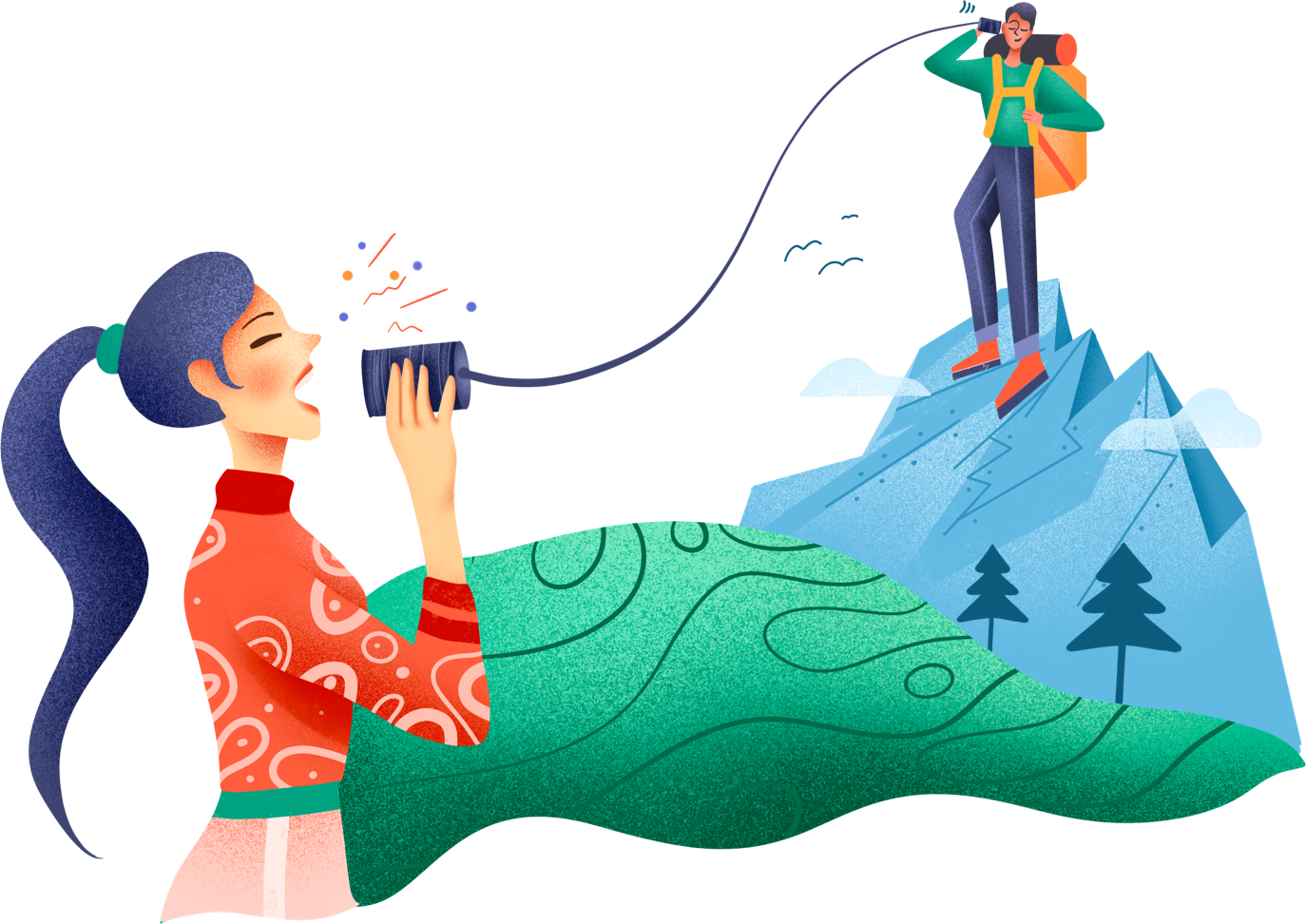Welcome to Conversations with Black Creators 2021! We have an incredible group of creators lined up for the series this year.
Editor's Note: The Conversations series is intended to highlight Black creatives’ work in various fields. At Tako Agency, we are really proud of being creators--people who pour creativity and skill into beautiful projects that add value to the world--and we want to make sure that all creators have a platform from which to make every corner burst with life.
To support Black creatives, Tako Agency is making a donation to the Black Art Futures Fund for every feature in this series we publish on the Tako Stand. The outpouring of funding and philanthropic giving that was initiated when #BLM re-entered the spotlight in May 2020 was a GREAT thing, but we believe it’s consistent support over time that makes the most difference.
If you or someone you know would like to be featured, please fill out this form and we'll be in touch!
-- Grace, Creative Director
We’re kicking things off here in 2021 with Chivonne Michelle, who’s an LA-based actress, director, writer, producer, teacher, and mother.
She also double majored at NYU and graduated in three years. (Yeah...I know. [eyeroll] Overactor.)
I can’t think of a better metaphor to describe Chivonne than a deep well. She came out swinging in this interview with an infectious sense of humor, superior intellect, huge heart, and a goddamn fiery attitude.
Something that struck me is that her penchant for bearing her whole soul in her art translates seamlessly to her communication in everyday life (or, at least in random interviews with total strangers). We talked about everything from the profound inspiration she found in the film Mrs. Doubtfire (not kidding) to the inaccessibility of Black mentors in her industry. No matter how simple or complicated the discussion, Chivonne brought her full self. I never got the feeling that she was guarded.
Make no mistake, though: she is not carelessly or naively transparent. I would dare anyone to try to take advantage of her vulnerability. (She’s an Aries, after all.) That balance is so rare, and the fact that it is so strong in Chivonne is a testament to her wild advocacy of self-love.
Plus, the girl is just a f*cking kick in the pants. I hope that you enjoy getting to know her as much as I did.
Hey Chivonne! So, when I looked at your resume, I immediately posted it to our core team Slack channel and was like, “Um, this is our next Conversations interview. Should my first question be, ‘how in the hell do you do all of these things?’” There was a unanimous “YES,” so...go.
[laughs] Uhhhh...I don’t know! I was an overachieving only child whose parents were like, “Yes, go do all the activities so we don’t have to talk to your precocious ass all the time.” So I blame my mother who was always like--you’ll do swimming! And hula hooping! And Christian theatre!
Ah, so you’re accustomed to that level of multi-tasking.
Yep, yep, yep. This is my normal. The pandemic making me do only three different things at once--being pregnant, auditioning for and doing voiceover work, and teaching--it’s been very weird. There’s not enough going on!
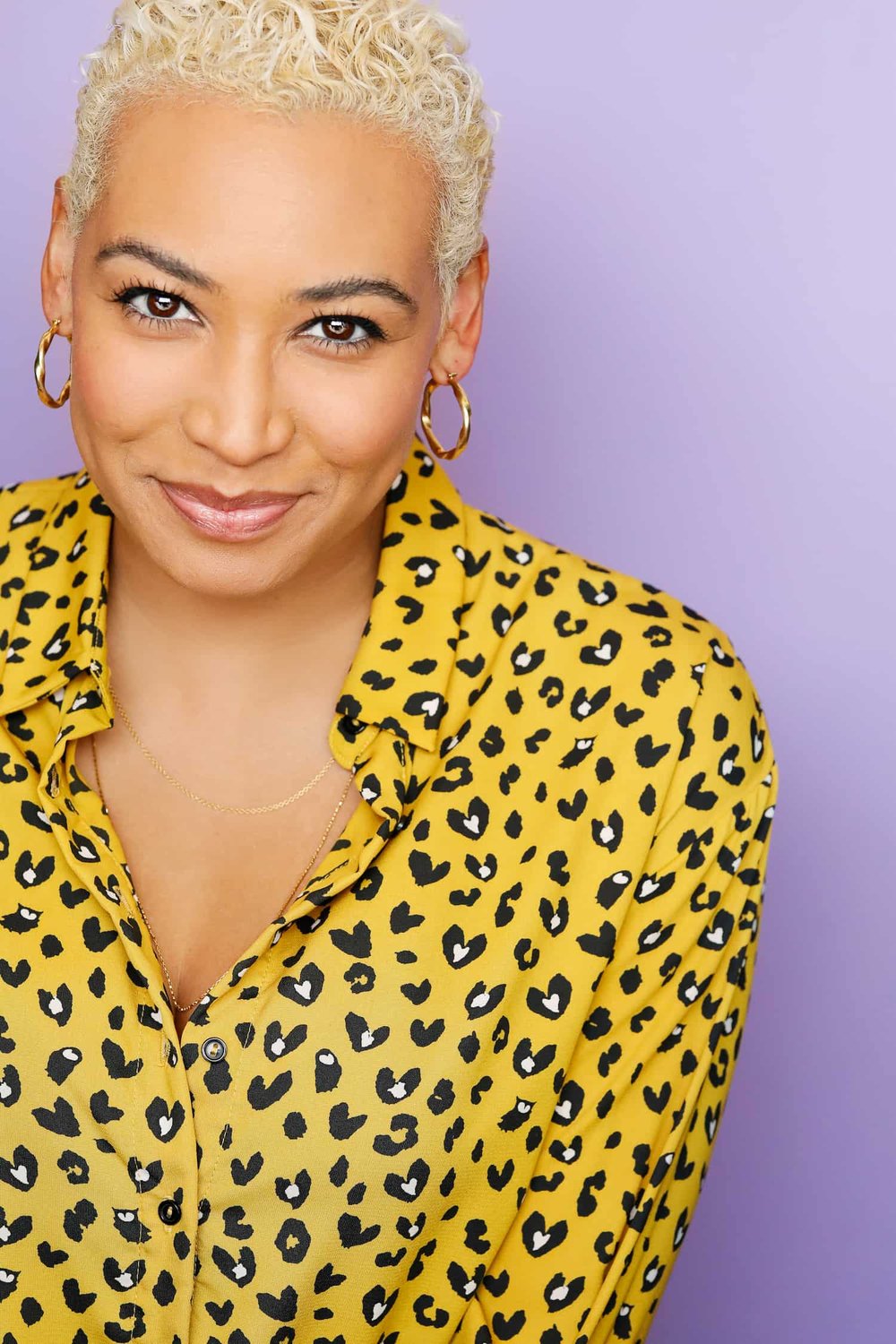
Let’s go back to my usual intro for these interviews: go ahead and introduce yourself to our readers at the Stand.
Hi, my name is Chivonne Michelle. I’m an actress, teaching artist, writer, producer, director, and now I’m a mom! Which is so f*cking weird because I keep looking around like [shrugs, looks frantically side to side] where...are the adulty adults?
So, you were like...I’ve been managing 17 things for way too long, what I need is 18 things. Let’s have a baby!
Yeeeeah, exactly. We also adopted a dog at the beginning of the pandemic, before we knew we were pregnant. I have a partner, so with them and the dog, it’s like managing two toddlers. I just figured, like, what’s one more??
Absolutely, I mean...you’re superwoman! You got this.
I mean...yeah, God is a Black woman. Hi. [waves] The election results? Yes, Black women are God. Ya welcome. [laughs]
On your voiceover page, I absolutely read “I do voices” with Robin Williams’ voice in my head. You said that [Mrs. Doubtfire] is what made you fall in love with voice acting. Tell me about that moment, when you decided, “That--I’m gonna do that.”
Yeah! So, I’m a military brat. I was born in Canada, then moved to Hawaii, was in Europe for six years, in America for a couple years, South Korea for high school, then back to the States. With all of that moving, the one constant I had was TV and film. I would get VHS tapes (ha...showing my age; elderly Millennial here!) from my family and friends in the States and one of them was Mrs. Doubtfire.
Eh, a little back story for this: when you’re an only child, you only have yourself to play with. You make up voices, you make up stories...you do all of the things that are the basis of true storytelling. Basically, I paid NYU $250,000 to remind me that I already knew how to do all of that. [ahem]
So when I saw Mrs. Doubtfire -- doing voices like that just looked like so much fun, and it felt like something I’d already been doing, playing on my own.
The other good thing about voice acting is that, usually, casting directors don’t care what race I am. It’s just, “Do you sound like a chipmunk?” “Do you sound like the person who shops at this store?” There’s just a lot of room for shapeshifting. There’s been a fuuuuckton of white people doing “Black people'' voices for years, and vice versa.
I think we all kind of have a general idea of what it’s like to try to become a screen actor--we see depictions of it all the time--but not so much with voice acting! I’m sure it varies from person to person, but, for you, what did that journey look like?
For most people I know, VO is accidental. When I was in college my last year I was interning at the talent agency that represented me, and I was just messing around, using a weird voice to make fun of someone. My agent was like, “Wait...what was that voice?”
And I was like, “I don’t know...I do voices. Sorry.” [laughs, gestures vaguely] They said I should do voiceover. I was like, “hMmMmMmm...what do you mean? What is this category?”
After that, the agency put me on the VO roster! For the next 5 years, I auditioned all the time...got nothing. Then, one day I got a call, “This campaign, you booked it! You gonna go to L.A. and say all these words!” I was like, “And pay my rent? Exciting!”
Five years is a real long time to go without getting a single booking, but you just kept at it!
Girl. That is what entertainment is for those of us who don’t have family or friends in the industry who can make the entry fast and smooth.
That takes some natural fortitude--which it seems is not in short supply for you. If there is a more important ingredient, do you think it’s having that natural go-get-’em attitude, or just raw passion for your craft?
Neither. I think you have to love yourself. I lay this into my students all the time. Whenever I ask something like, “How did you feel about that scene?” And they say, “Oh, it was OK…” I’m like, NO! [throws up arms] You are your first love! Especially in acting, a large portion of our job is being rejected...all. the. time. If you have a f*ckton of self-love, resilience comes naturally.
Wow, yeah. That’s applicable to so many things, too; but I imagine it’s especially important in an industry where rejection is par for the course.
Mmhmm, yeah. And the bullshit where people that are like, [valley girl voice] “Oh, don’t take it personally”? I’m like uhh...f*ck you. My job is to represent my entire self, as available and vulnerable as possible.
When you’re an actor, director--whatever--you’re putting your soul out there. That shit’s personal. So, yes, self-love, therapy...shit’s important.
How did you end up in New York, at NYU?
They were the only ones that let me in!
Really?
[laughs] Yes and no. I auditioned for musical theatre because my parents and horrible high school guidance counselor were, like, well if you’re gonna do theatre, you do musical theater or you do Broadway.
So I auditioned for musical theatre at three different schools, didn’t get into two of them, and NYU was the only one that gave me the option to audition for what we call “straight theatre,” [which is just non-musical theatre]. That’s the program I got into.
So you got your BFA in theatre.
Ah-ah. [wags finger] Actually, double-majored in politics and theatre.
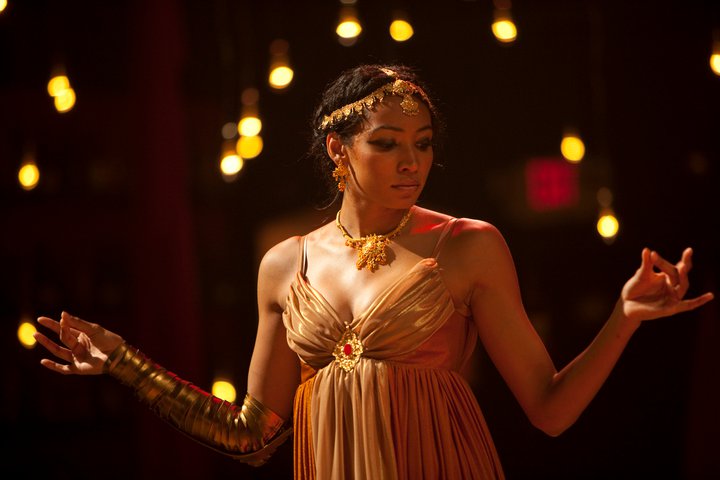
OK, wait, now you’ve derailed my question because I obviously have to ask, like...what the hell?
Well, I’ve always been able to look at America, and being American, as something secondary--sort of, “outside” of my identity--because I spent so much time abroad. Then, when I was about 15 and learned the electoral college was a thing, I was like wait, wait, wait...so, you’re telling me this country, which made all of its money by owning people who look like me, created a system with the sole purpose of old white men maintaining their power? OK, we gotta talk about this.
Outside of that, it was just nice for me to be able to switch from [dramatic English accent] “ART IS LIFE” to politics classes where it’s like...bad shit happens all the time, all over the world, but we create governmental structures in an attempt to kind of, sort of, maybe make things better.
Also, there was the fact that doing something in addition to theatre helped sell my parents on the NYU price tag. [laughs]
Was their confidence shaky at all when they saw you were definitely headed in the theatre direction?
[nods emphatically] My parents have always had this funny, oxymoronic confidence in me. They’re like, “We believe that you can do anything….but…[leans in, grimacing] shouldn’t you do something else?” It wasn’t until I bought a condo with acting money that they realized, “Oh, this works!”
You’re a woman of an insane number of talents--directing, producing, acting, teaching--among others, I’m sure. If you had to pick just one to exercise for the rest of your life, what would it be? Why?
Teacher. Specifically teaching theatre. It’s wildly fulfilling to walk into a room full of like-minded people who are there to exhibit the fullest expression of their most vulnerable selves in an effort to, essentially, make the world a better place.
We get to artistically examine capitalism (and other unfortunate paradigms we deal with in everyday life) and show them, from each of our unique perspectives, for what they actually are. That’s different from slogging through on a set, dealing with the patriarchy...I love being on set, but there just came a time, right around when I turned 30, I realized teaching brings so much peace to my soul.
What was the greatest challenge you overcame in 2020?
Oh, Jesus Christ. You mean besides being Black and still being alive? [laughs] You know...probably that: my sense of humor is still intact. Despite the Trump 2020 campaign, the pandemic shutting down 90% of my industry, and all the other shit, I’m still here, and I’m still laughing. I’m really proud of that.
What are some unique challenges that you’ve experienced as a Black creator in America?
[dramatic eye roll] How much time do we have? I was talking recently to a good friend, who is female-identifying and half-Persian and half-white--or, as I like to call her, spiiiicy white. [laughs] Pretty recently we started to feel like we’ve hit this point in our careers where there’s no one to mentor us from two to five steps above us. They’re all ten steps above.
For example, you have Shonda Rhimes, who is my idol, for lack of a better word. I think she’s a phenomenal creator, a phenomenal mother. She’s created content that America loves to devour regardless of race, gender, orientation, etc. BUT it is so hard for people like me to find mentors who are below her level because there just aren’t that many. I can probably name for you the 10 to 20 Black female multi-hyphenate executive producers in Hollywood, but to get access to them, you’re either their personal assistant or you’re related to someone who can introduce you. It’s so, so hard to find that mentorship.
By contrast, for a white person in the industry, it’s easy to find a mentor who’s one to five rungs up on the ladder--and willing to help; because it doesn’t hurt them to help someone who looks like them. [shrugs]
So, my friend and I are caught in this weird in-between where we’re not famous, but we’re working and we’re experiencing great success, and we don’t have anyone to help us navigate the space in a way that will get us to the next step. We just have to figure it out.
Wow, yeah, and that’s how you end up with these outliers who “make it” and are totally out of touch with the world *cough*Kanye West*cough* or who lose sight of the struggles of non-famous people who look like them. So we look at them and we’re like, “They’re Black people in white spaces, yay!” but there’s an enormous gap between them and everyone else.
Yeah, exactly. Like, where are the 20 people that should be between me and Shonda? Don’t get me wrong--they exist, but oh my f*cking God, I have to find them. That’s incredibly hard in and of itself, and in the meantime, I have to be the best at what I’m doing at all times--you know, fill in the blank of Black excellence--in order to even maintain my position while I look for those mentors. It’s so much pressure.
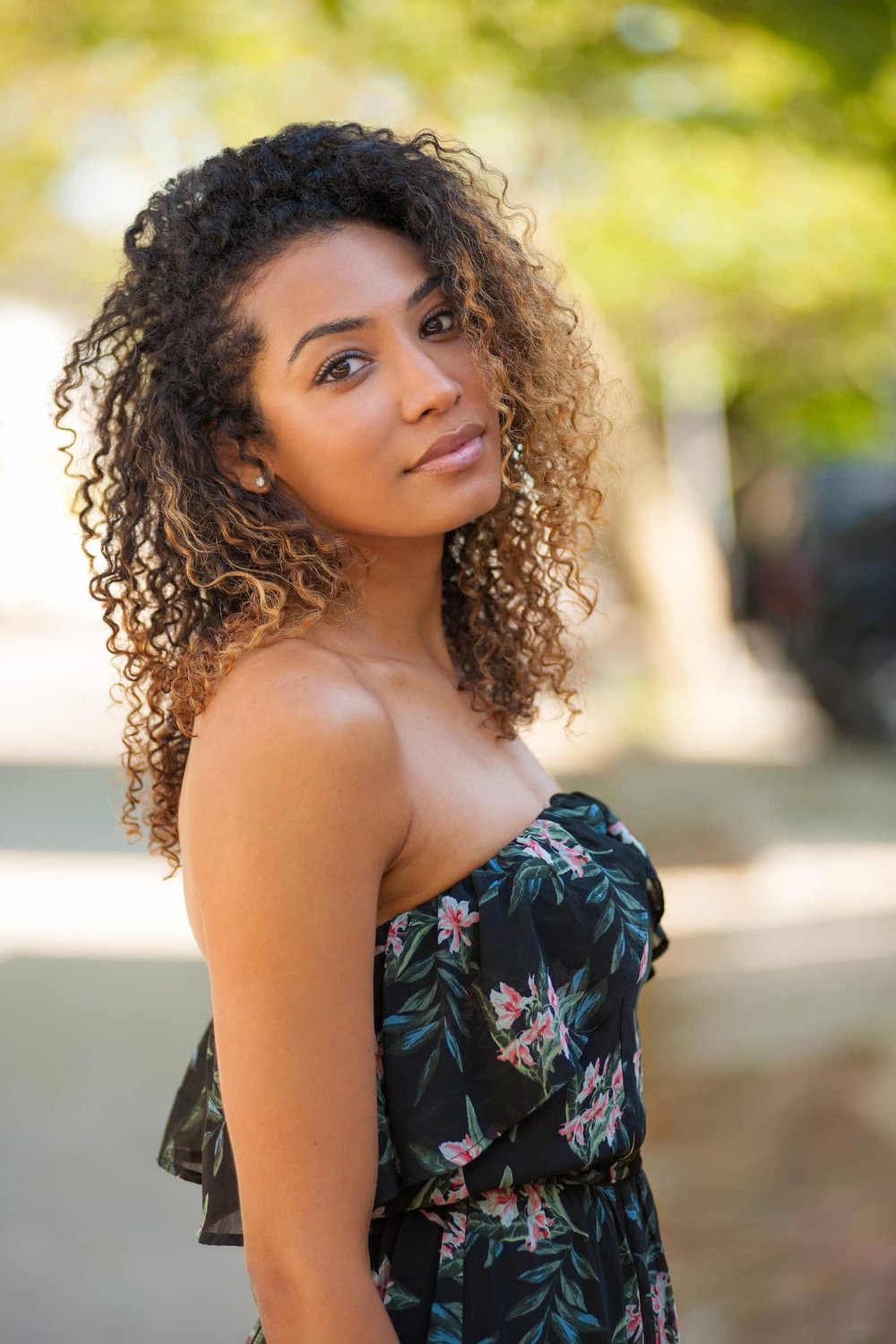
Speaking of mentorship and Blackness, what advice do you have for young Black creators, specifically?
Find your community. The bubble that I was fortunate to create at NYU has expanded and that has kept me alive and thriving. They’re people who think the way I do, who believe in art for art’s sake, who also believe in making money, who are in it for the long haul.
Find people at your level who can be your cheerleaders, kick you in the ass when you’re being lazy, or give you a couch in a city where you need to take an opportunity. Then help someone else who’s younger than you or on a rung lower than you, being like, “Hey, I have this measure of experience and knowledge that I can pass back to you.”
Basically, find your circle that keeps you safe, and then find people who you can nurture and make a little safer as well.
That, ultimately, would help to fill those gaps we were talking about. If you have a line of people constantly passing a torch, you can avoid this incredible chasm between where you’re at and Shonda Rhimes.
Absolutely. And ideally, white creators should be looking around and being like, “Hmmmm…[hands on hips] this is a mighty white, cis-gendered, male-dominated space. We should probably do something about this.”
And the thing we do should not be ‘putting already recognizable Black faces in the space,’ right? Seems like that happens most frequently. “Oh that’s a recognizable Black figure, let’s use them."
Yeah! But I’m not sure it’s all about recognizability either. I think a lot of people in the industry don’t realize they still have a racist mindset.
If you’re picking a Black person everybody knows, it’s not because everybody knows them; it’s because they’re tested and they’re safe. They’re reliable. They show up on time. They do the thing you expect them to do. “Look how amazing it is that they consistently go above and beyond despite their race that’s held them back.” No, that’s your racism pulling a safe card because you’ve been told that we are an unsafe and unpredictable anomaly.
Writer’s Note: At this point, I had to pause. Like I told Chivonne, it’s really hard sometimes to do these interviews because, ultimately, these complex systemic issues--like access (or lack thereof) to Black mentors in Chivonne’s industry--present impactful learning experiences that are so important and so precious to me. That said, the Conversations series aims to get to know the whole person--not simply interrogate them about their Blackness.
It’s hard to jump from “Let’s talk about this critical hurdle that I will never have to experience because of my whiteness,” to “Tell me about your favourite taco filling!” without sounding like an ignorant, dismissive flake. I’m still learning how to create seamless transitions in this process. In this case, I’m bridging the gap with this note. Next question…
Tell me about your creative process, if you have one.
It’s different for every medium, but at its foundation, it’s always collaborative and heart-opening. Whether I’m teaching, directing, writing...I love a feedback loop. I love looking at the person in front of me and saying, “Hey, this is what I’m trying to communicate--is that coming across?”
By “heart-opening,” I mean that I like to bring my full self to every project. In auditions I’m known for crying or cussing--even for the lowest-stake, two-line character--because that’s just how I roll. I have to bring my full self. It might appear excessive, but if I don’t do that, my performance is shit, and I’m not getting the job.
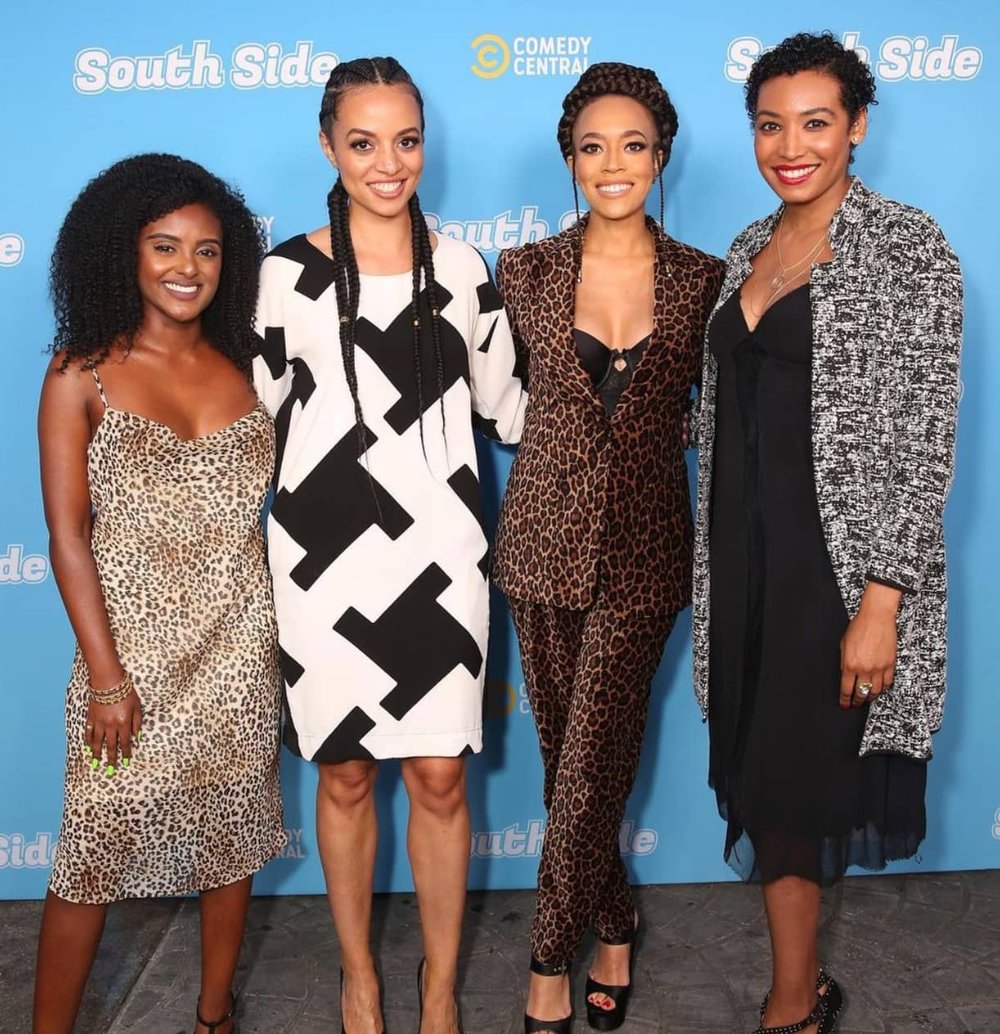
I ask this of all our Conversations interviewees, but I’m particularly interested in hearing your take as a teacher. Do you think creativity (not to be confused with skill) is innate, or do you think it can be taught?
I believe talent is innate and creativity can be taught.
What’s the difference between creativity and talent?
If I have an acting student who brings in a scene and is just wildly connected to the character and moving me so much that I can’t help but believe that they are this person--maybe totally different from who they are in class--that’s their talent shining through.
Then, when they finish the scene and I provide feedback as a teacher, director, collaborator--if they can take those notes and make something bigger, brighter, more affecting...that’s their creativity and talent working together to make this beautiful explosion.
That totally makes sense. You’re teaching them creative problem solving; you’re giving them something they can build on to make it better but still true to them.
Exactly.
Where do you feel most creative?
Oh, with my first love: in theatre. I miss it so much, but you dooon’t make annny money in theatre!
Well, you do, if you’re on Broadway. Then the pandemic happened. Won’t even talk about all the producers who waste their money to get tax deductions instead of sustaining a beautiful form of art. I digress. The original question wasssss…?
[laughs] Where do you feel most creative?
Merci beaucoup! [laughs] I feel the most creative in theatre spaces because...story time!
A lot of military bases have community theatre and when I was about five, I saw Cinderella. One of the stepsisters was white, the other was Asian, Cinderella was Black, the stepmom was Black, Prince Charming was Puerto Rican. I remember watching that and being like, “Oh that’s like my family,” because my mom is white and Indigenous and my dad is Black.
Until I was in my 20s, I was most often the only mixed person in any space. It was really dope to see that in theatre. It made me feel safe and like I belonged. I love creating that feeling for other people. Theatre feels as inclusive as possible, and it presents intimate moments that will never happen again in exactly the same way.
ALRIGHT--last question. Two parts, but it’s easy. Part one: do you like tacos?
Uh, hell yeah. What kind of psycho doesn’t like tacos?
Agree. Part two: what’s your favorite taco filling?
Oh, shit. OK, so when I moved to California--the Land of Many Tacos--I discovered birria tacos. They’re red beef tacos. Oh, that shit is the truth. I live in the valley and there’s this spot in Venice called Teddy’s Red Tacos, which I will drive to, in traffic, for tacos. They’re that good.
Mad love to Chivonne for her time, as well as her humor, fire, and tenderness. xx
Don’t forget--you can check out other creators featured in the Conversations series here!









